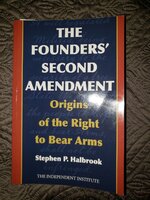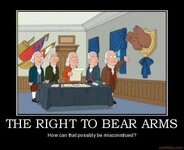Bronze Supporter
- Messages
- 372
- Reactions
- 840
Bravo!! Great narrative!
But...
"The Constitution was not "delayed while the States wrestled with the Bill Of Rights".
The Constitution was ratified in 1788." Help me understand!
The Constitution was signed in 1776 and ratified in 1788! Wasn't the delay the argument about Federalist vs. Anti Federalist (Centralized Government Power Vs. States Rights) and Individual Rights like the 1A, 2A and 4A?
Smiles,
The Philadelphia Convention ended with the Constitution being signed in Sept 1787. Then sent to states.
ETA - the Bill of Rights was created in summer 1789, approved Sept of same year, then sent to states.
ETA2 - I should strive for better clarity:
In both cases, the Constitution and the first Amendments, were constitutional documents created by and then approved by recognized national bodies, and then submitted to States for representative ratification.
[cheers]
Last Edited:
















